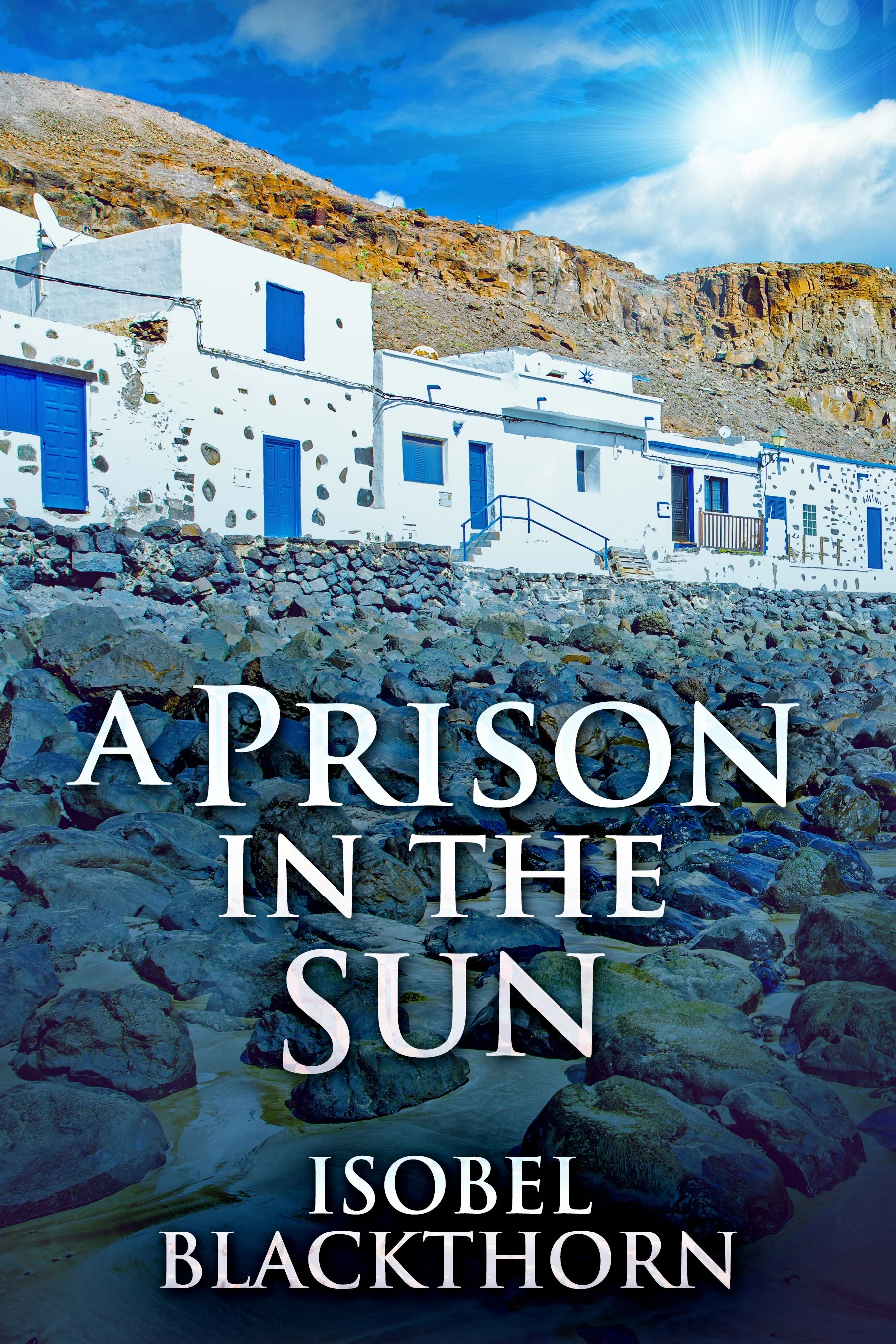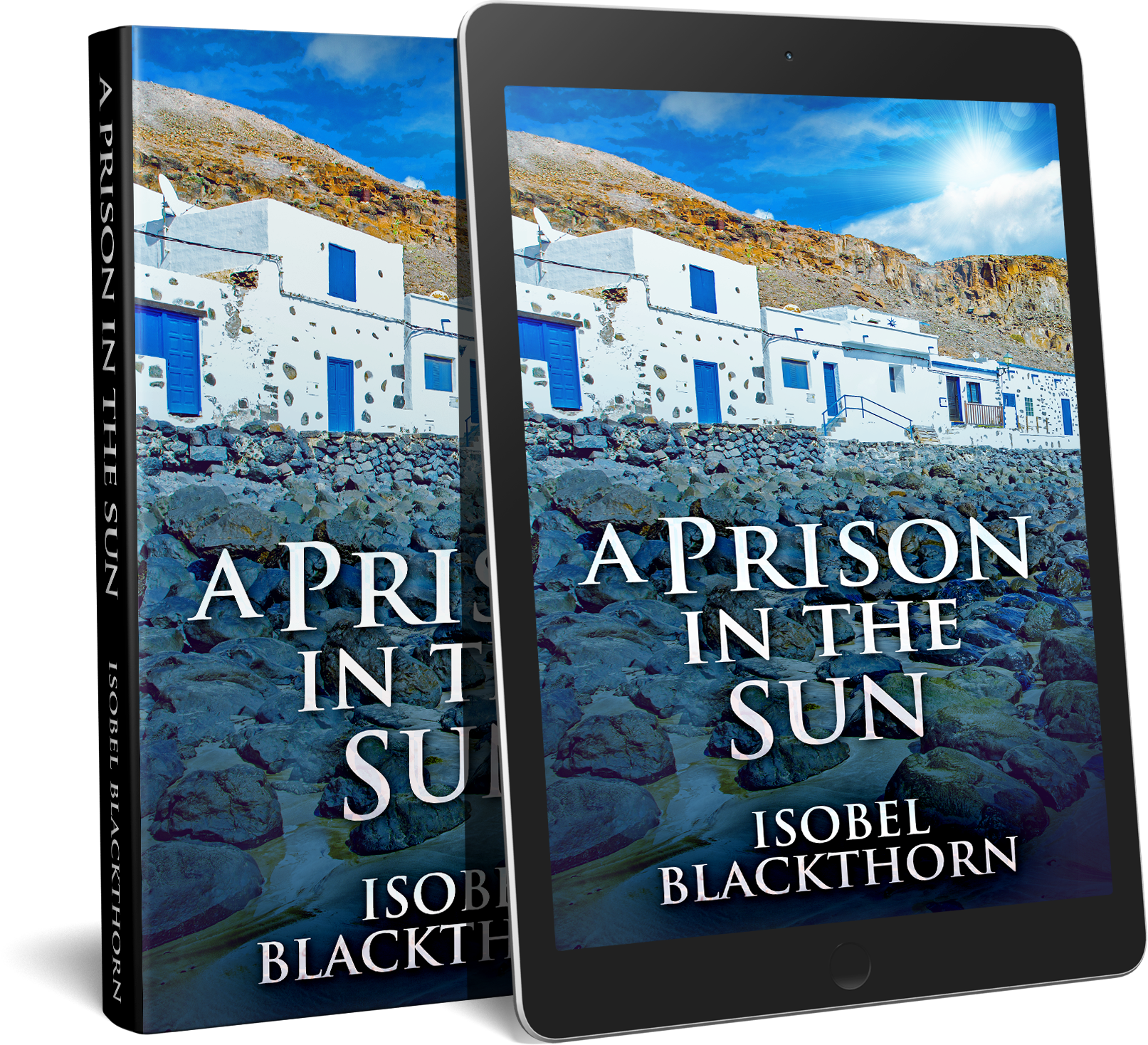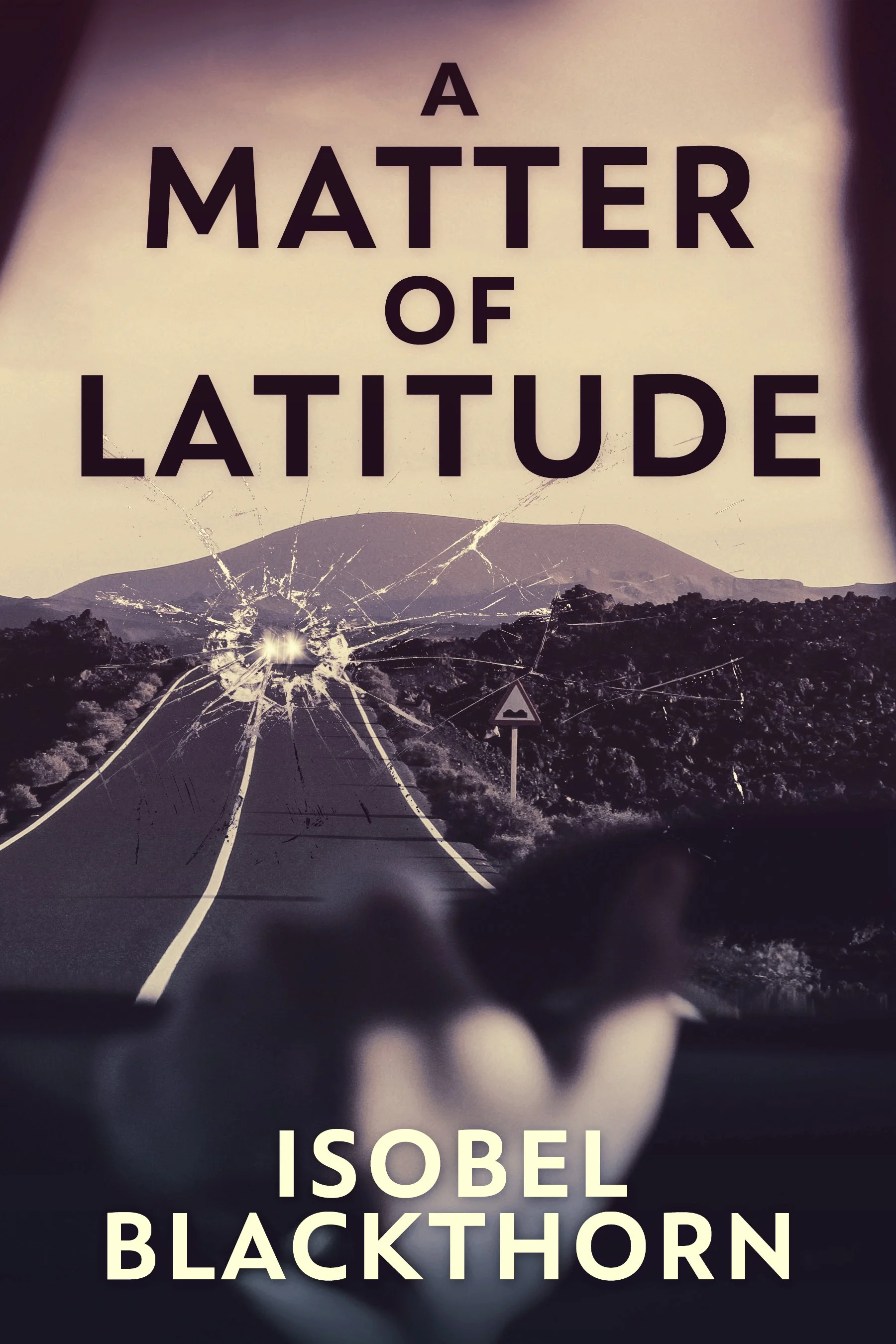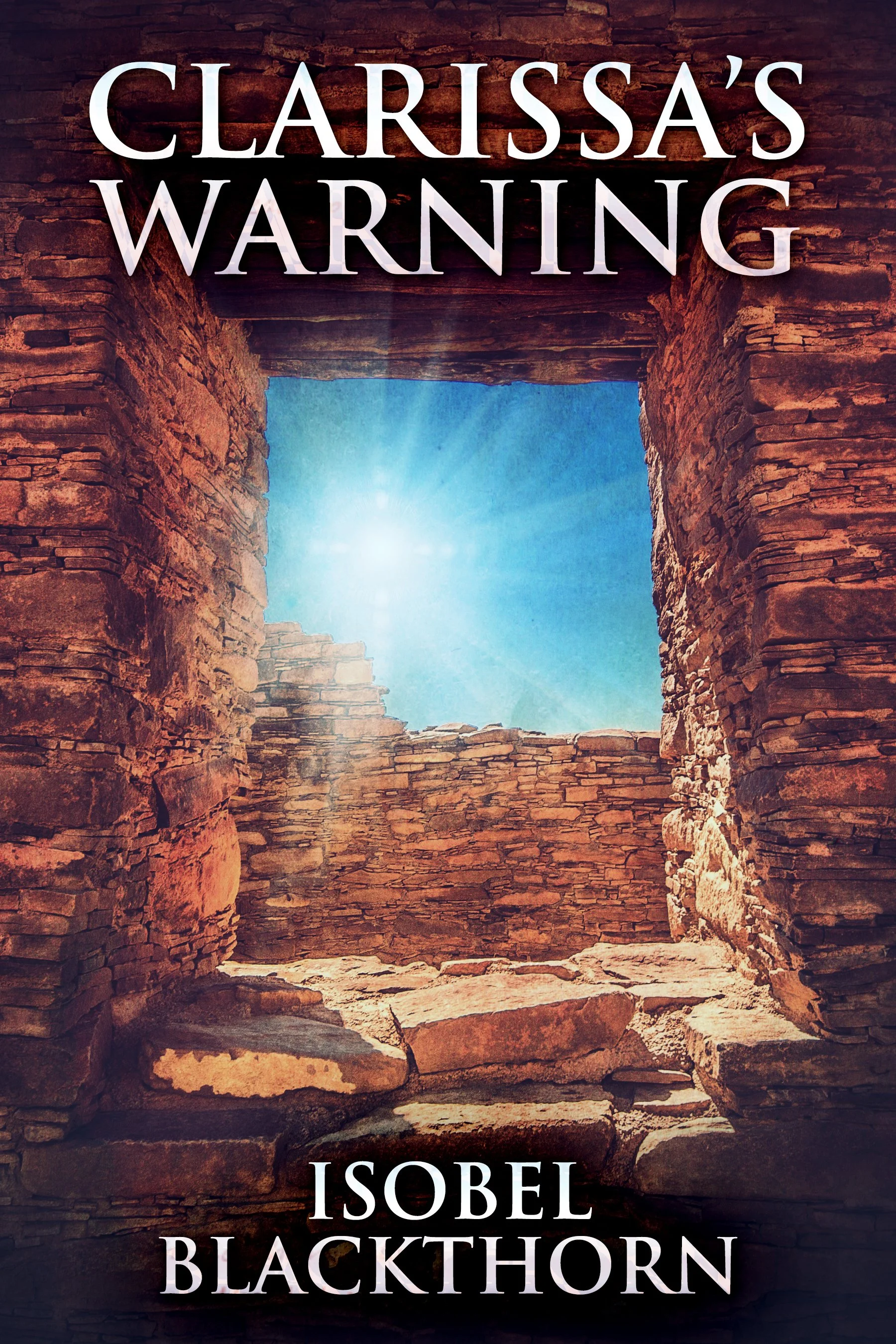A Prison In The Sun (Canary Islands Mysteries Book 3)
Book summary
In "A Prison In The Sun," ghostwriter Trevor Moore seeks creative inspiration in a rented farmhouse on Fuerteventura, only to stumble upon a mysterious rucksack filled with cash. As he grapples with ethical dilemmas about its ownership, Trevor embarks on a journey to uncover a hidden and unsettling history: the forgotten concentration camp for gay men in the 1950s and 60s.
Excerpt from A Prison In The Sun (Canary Islands Mysteries Book 3)
The farmhouse had walls three feet thick, a staunch reminder of what it took to live around there and what I refused to get used to: the wind, the dust, the heat, the excoriating sun. I’ve been on the island two and a half weeks, and I am still not sure what attracts visitors to that locale. The island itself, I can understand. Winter sun, beaches galore, plenty of space and a safe, laid-back atmosphere. It’s the Canary Islands’ tourist mecca of Fuerteventura. Most of the tourists are corralled in enclaves along the east coast. There, on that barren plain where the ocean views are cut off by hills, and a range of mountains separates the inhabitants from the more populated areas, there cannot be described as anything other than inhospitable. Yet there people dwell; the holiday let, the last of a smattering of farmhouses that calls itself a village: Tefía.
My island getaway.
A rational choice at the time I booked. A Friday, as I recall, and a dreary English afternoon in June, the sun struggling to send its light through layers and layers of cloud. In my cramped one-bedroom flat, ignoring the windows fogging and the radio that the tenant below insisted on playing all day and half the night, I surveyed the island onscreen and considered my criteria. I wanted no beach, no people, no noise, no distractions. A list of negatives, true, but I had enough mayhem going on inside me without suffering the usual gamut of holiday amusements. I wanted a retreat, and I was booking a holiday for good reason. I was booking a holiday to straighten myself out.
When I studied the photos of the holiday let, the numerous small and neatly furnished rooms that appeared to be arranged around an internal patio, the shuttered casements, the beam ceilings, the four-poster bed and claw-foot bath, I thought I had stumbled on the perfect accommodation, if a little large for one person. Views of tawny mountains beneath brilliant skies drew me too. I overlooked the obvious fact that such a photograph would not convey the harshness of a landscape. In all, I didn’t give the matter another thought. Impatient, I booked the flights and accommodation in under an hour and went out in the dismal rain to buy a new suitcase and a bottle of Sancerre to celebrate.
A week later I boarded the plane, endured the plastic seats and the crush of bodies in the cabin and, five hours later, collected a hire car at the airport. Fuerteventura greeted me with thirty-five-degree summer heat. I had to locate the car somewhere in a glare of metal and tarmac as I broke out in a sudden sweat.
I extracted the mud map I had drawn on a paper serviette back at Gatwick airport – consisting of three spidery lines and a couple of intersections – and used that rather than GPS to navigate my way the twenty miles to Tefía.
Beyond the bustle of the coastal strip, the island bared its authentic self. For the duration of the drive, through nothing but dry earth and rock and low barren mountains, I allowed in a curious fascination, the larger part of me remaining disturbed by the strange desert landscape.
A final bend and I headed north across a plain, following the line of the mountains to the east. When I saw the Tefía sign, I slowed, knowing my accommodation was close, keeping an eye out for the cottage, spotting its drive.
Stationary at last, I opened the car door on a light breeze. The temperature was not much cooler up on the plain. Looking back the way I’d come, I noticed a haze on the eastern horizon. Dust? I had read something on one of the tourist websites about the Saharan dust.
The farmhouse was stout and quaint, with a flat roof and small, multi-paned windows positioned randomly in walls protected by verandas. There was no house on the other side of the drive, and behind the farmhouse was a field. Other houses were scattered about haphazardly.
I hefted my luggage out of the boot, found the keys under the doormat and let myself in.
The interior was cool, the air freshened with a flowery perfume. I dumped my suitcase and rucksack in the first room I entered and explored the layout of the place – rooms leading on to others, the occasional dead end – ending up in the kitchen where a hamper had been left out on the bench.
Curious, I unpacked the goodies, only to find that everything came in pairs, including two flutes for the champagne. At the sight of the holiday accoutrements of coupledom, a disconsolate hand fisted my insides. I headed to the main bedroom to find two chocolates centred on the coverlet of the four-poster bed. Love hearts in pink wrapping. By now the fist had reached my throat, and I let out a whimper and couldn’t hold back a rush of tears.
I’m a man not given to emotion and I made every effort to curb the flow, but I admit it felt good to cry a little, or even a lot. I guess I hadn’t faced up to my aloneness until it was so caringly thrust in my face.
The hamper kept me in provisions for the first two days of my stay. The thoughtful owners were not to know how relieved I was not to have to leave the farmhouse. I wanted to venture out and explore my surroundings, but I had arrived with a backlog of work and needed to rid myself of the burden as fast as possible.
I’m a freelance ghostwriter– not my chosen career, if such a job can be called a career. I knock out memoirs, finish novels, write articles, create blog and website content – non-fiction pieces on health and diet, top tips and travel pieces – and even the occasional short story. The last won the author a prize. I give other people voices, help them to communicate whatever they need to say. I work for small businesses and corporations and writers with more wealth than ability. On some level, it is satisfying work and I am proud to say I make a decent living out of it, but at that moment when I arrived in Fuerteventura, I had begun to feel stale.
I had an article to write for a fitness website, five blog posts to compose for various companies – the sorts of posts I churn out with ease, making for a half-decent hourly rate – and a short story to complete for a woman who couldn’t conjure an ending. And I could see why – she was white and British and had crossed the cultural-appropriation line by choosing to be an indigenous Australian. Worse, she was writing in the first person, a culturally sensitive move, and she had entered dangerous post-Shriver territory. I felt uncomfortable maintaining the pretence she had created, but she was paying handsomely, and I could always do with the cash and besides, no one would know of my involvement. My name would not appear anywhere on the finished piece.
Being a ghost has some advantages.
The work kept me indoors staring at my laptop. I was so caught up in the backlog, I barely took my eyes off the screen. I might as well have been back in my crummy flat in West London.
On the second day, as the hours slid by, irritation gnawed at me. I had saved the short story till last and I found myself trudging through Australian desert scrub in the searing heat, acutely aware of a similar landscape outside my front door, sweating as the day grew hotter, reminding myself the protagonist would probably not be suffering as I was, probably not feeling sticky and irritable; she was probably entirely at ease as the sun blazed down, but what would I know? Do indigenous Australians get sunburnt? Do indigenous Australians suffer heatstroke? The Internet didn’t seem to know. I felt rude, possibly racist even asking.
I managed to insert the paragraphs the draft had been lacking and polish the ending which had lacked pizzazz, but when I hit Save and then Send, I reminded myself freelancing was not what I had come here for and I needed to set up some boundaries, ignore the ghost-writing jobs filling my Inbox.
I had booked a three-month stay because I thought that would be ample time to write something in my own right. No better way to smooth out the battle scars of life and find inner peace than compose a book-length work of fiction in monastic isolation far away from one’s regular life.
The writer’s retreat.
Most writers on retreat already have a clear idea of what they plan to work on. I did not. I knew what the novel would not concern. I would not draw on my own experiences, recent or from my childhood. I was emphatic about that. I would leave self-cannibalisation to others. Neither would I delve into the genres. I would compose something literary, contemporary, with a hint of history. I wasn’t thinking about sales or prizes. I wanted the satisfaction of seeing my own name on the cover. I wanted to call myself an author.
My problem, therefore, was that of the blank page. I lacked inspiration and had no idea where to look to find it. All I knew was that I would not find that inspiration inside of me. I had nothing in my makeup that would form the basis of a good story, period.
I spent the rest of the day pacing around the farmhouse, standing in the various rooms, trying to imagine who had lived there. A large family. Farmers. Traditional people. Boring. The afternoon faded into evening and I hadn’t so much as conjured a character.
Early the following morning, finding I had eaten the entire contents of the hamper, I ventured into the village, taking advantage of the relative cool of the day. The walk took me past a few shabby-looking dwellings – white cuboids with shuttered windows, austere, no frills – the bulk of the village spread higgledy-piggledy to either side of the arterial road.
The shop was located at the other end of the village, set back from the road opposite a bus shelter. Inside, the shelves were surprisingly well-stocked. I bought local bread, cheese, tomatoes, onions, garlic and eggs, along with a length of chorizo, two tins of tuna and three bottles of a promising-sounding red. The woman who served me was friendly, and I gave her my warmest smile. A benevolent soul, her broad face beamed into mine, but I was unable to understand a thing she said. I extracted my wallet and held out what I thought was near enough the correct amount. She took the notes to the till drawer and then placed a few coins in my palm. Gracias, I said, no doubt appallingly. De nada. Then, ‘See you later’, which she delivered in a staccato monotone, and I could tell we shared the same handicap.
In the time it had taken to shop, the sun had gathered its forces and now had a bite to it. On the walk back to the house, all of five minutes, I was buffeted along by a bossy breeze.
The mountains held my attention. I vaguely enjoyed picking out the various shades of pale brown.
In Fuerteventura, the eye has no choice but to attune to the colour brown and discern the nuances. Perhaps we are predisposed to find beauty wherever we can, but it would be stretching the concept to describe the landscape around Tefía beautiful. It was anything but. ‘Desolate’ best labels the place. and I was relieved to find myself back at the farmhouse, which already felt like a sanctuary against the elements.
Surveying my meagre purchases, realising they would get me past lunch and possibly dinner but little further, and knowing I didn’t plan on popping up to the local shop every day, I decided to do a proper grocery shop that afternoon. After all, I thought, I had a hire car and planned on using it.
I found Internet reception up at Tefía excellent. I jumped online and had no trouble locating a decent-sized supermarket. I had two options to choose from. I could head north to Lajares or south to Antigua, either route an easy drive through open country. I chose the southern route as it was a good deal shorter. After lunching on a baguette filled with cheese, tuna and thick slices of onion and tomato, a combination that proved tricky to eat, I wrote a comprehensive shopping list. I thought through all my needs and wants, and wrote them down in discrete groupings: dry goods, tins, deli, meats, frozen and fresh veg.
I’m one of those house husbands accustomed to the grocery shop. I’m not a browser and I do not dilly dally. I like to be in and out in the fastest possible time. It is something of a sport with me. A game. I have never resorted to a stopwatch, I wouldn’t take it that far, but it brings out my competitive side, and I am proud to think how efficient I am. The only challenge I faced this time was the language. I needed to get past the basic level of my free, online language course if I was to be anything other than mute when it came to communicating with the natives.
The drive proved more pleasing than anticipated. There are some fetching vistas along the way heading south, and the barren landscape did begin to hold some appeal, if only through the sheer sameness of it. Round every bend, more bone-dry fields and barren mountains. And the mountains stole the attention yet again. None of them are all that high, but their shapes are visible in their entirety, there being nothing growing on their flanks. That day, I found there was something absorbing about them on an aesthetic level, and I felt the faint stirrings of the muse. Although I would need a lot more inspiration than a landscape could provide, no matter how inhospitable or starkly magnificent, before I could even begin to think about writing a novel.
In Antigua, the supermarket was easy to find. I was in and out in under half an hour with a boot load. As I opened the driver’s side door I knew that next time, I would have that half hour reduced to twenty minutes; I would write my shopping list in the order of the aisles.
I felt triumphant on the drive home. I didn’t even mind the heat.
There is something comforting about a well-stocked fridge and pantry, the thought that there is no need to leave the house. Liberating, too, leaving me free to think over important matters. Above all, if I went out, I wanted it to be for something pleasurable, something interesting. Not for a chore.
With the groceries all put away, I stared into the hours of nothing ahead and wondered how I would fill the time. I felt like talking to someone, but in those first days of my stay I refrained from letting Jackie and the kids or even my best friend, Angela, know my superb connectivity, preferring to let them think I had adopted a hermit style of existence and had committed myself to silence. Let them wonder how I was faring. Let them all miss me.
As I wandered from room to room, I began to relish the solitude. It was refreshing having space around me, both inside the house and out on the plain, space that acted as a salve. I sat down in one room then another, spending a sufficient period out in the internal patio as was good for my health. I must have occupied every seat in the place by the end of the afternoon, and I deposited something of mine – a book, a magazine, a device – in every room, carefully centred on a table or poised on the arm of a chair.
That evening, the sunset was tremendous. Bands of deep crimson swept across the sky, distracting me as I prepared a chorizo and pasta bake. When the dish was in the oven, I poured a large glass of red and then stood at the kitchen window and sipped the wine as I watched the changing colours, the deepening, the fading into night.
I took much pleasure later that evening gazing at the stars. The sky was especially clear, and after spotting the firmament in the portion afforded by the patio, I went and stood outdoors and soaked in the twinkling pinpricks in their various arrangements, a reminder of the wonders of the universe unknown to us in daylight. Eventually, I felt sleepy and took myself to bed.
The bedroom, with its four-poster bed centred against the eastern wall, was the defining feature of the farmhouse. The décor was pleasing, blocks of strong colour, no frills, no lace. In those early days of my stay, I enjoyed being in that room. I had never slept in a four-poster before, and I went to sleep each night feeling like a king.
The next day, I awoke at sunrise. I sat up in bed and then went and gazed out the window. I found the view nothing to speak of save for a lonely windmill perched on a rise in the mid-distance. A stout affair, probably not in use, its blades appearing still in the wind. It being the only feature of interest beyond the farmhouse walls, my gaze remained drawn, and I pressed my face against the glass as though to get closer.
My curiosity grew stronger, and I felt compelled to unearth the windmill’s secrets. What was its story? It must have one. A story tied to the ancient history of the island and local farming practices. Not exactly fuel for any sort of story I might compose, but then again, I shouldn’t prejudge. Besides, there was no telling what I might find there that might stimulate inspiration – a fallen handkerchief, a dropped wallet, the chip of some artefact, anything at all that would provoke that inner spark.
Having reasoned things through, I determined to venture forth across the dusty plain and investigate.
“This is a skilfully crafted story, weaving historical and contemporary events into a plot filled with angst, turmoil, murder and mystery”
“Isobel Blackthorn’s writing is beautiful and unique”
“A Prison in the Sun is the most brilliant book I have read in a long time”




















Praesent id libero id metus varius consectetur ac eget diam. Nulla felis nunc, consequat laoreet lacus id.